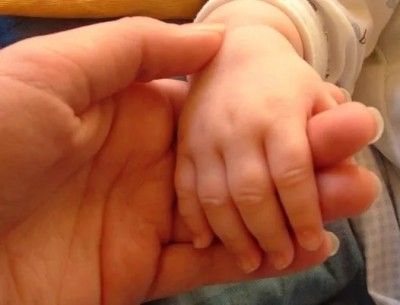Feighan: Medicaid bridges care gap for disabled kids
The first time services were cut for my disabled daughter, I cried in the restroom at work.
My daughter was 7 and we’d been allotted a certain number of hours a week for something called respite. Every other Sunday afternoon, a caregiver came to our house for my daughter, who was born with a rare genetic condition, while my husband, son and I did other family things like visiting a park or going out to lunch. An outside agency paid for it. We’d never had it before.
A funny thing happens when you finally get a chance to step back from around-the-clock caregiving for someone with disabilities. You realize how exhausting it is. You realize that your frantic “normal” — running around to doctor’s appointments, therapy sessions, feeding, bathing and keeping your child safe — is anything but. And you realize how heavenly it is to simply sit down on the sofa and breathe.
But six months in, I got a phone call at work. The agency that funded our respite care was going through serious budget cuts. We no longer qualified for outside care. We were on our own. Again.
I wiped away the mascara as it ran down my cheeks. I didn’t want to go back to the way it was.
Watching the most recent debates to dismantle the Affordable Care Act, or Obamacare, I remembered those feelings as I watched the Senate debate massive cuts to Medicaid that would’ve potentially left millions without insurance.
I wondered how many of those same senators had ever spent time with someone who relies on Medicaid, especially children with serious disabilities.
There’s a perception that Medicaid is only for low-income families. It isn’t. It’s also for families like mine — two working parents trying desperately to give their daughter the life she deserves.
Medicaid isn’t some arbitrary political pawn. For many families, it’s the difference being able to keep a disabled child or loved one at home with the right services and supports, or putting him or her in a nursing home or institution.
It’s the difference between providing therapy for a child caught in the darkness of autism or not. And it’s about paying for medical equipment and medicine that could bankrupt a working family.
Not that Medicaid isn’t without its problems. Getting services approved or authorized is an infuriating, agonizing maze of red tape. It can be so difficult to navigate at times that it’s enough to make you want to say, “Forget it.”
Months after our services were cut, we got notice that my daughter qualified for another program using Medicaid dollars for developmentally disabled children. It would help cover therapy, medical equipment and other things our primary insurance didn’t. Only the neediest kids in Michigan are eligible. It also covers respite care.
A case worker visited our house to do an assessment. She watched as my daughter drank water from the toilet when I wasn’t looking, threw toys all over the house and cut her finger. Little red dots seeped through the intake paperwork.
“Is this normal?” the caseworker asked. I laughed. Normal is a myth, but it was typical.
That’s why Medicaid is a lifeline for so many. People with disabilities and their families rely on it simply to live their lives. It helps keep families intact while working to maximize the potential of children who deserve a chance at a decent life as much as anyone.
So while the debate over repealing the Affordable Care Act may be on the back burner for now, families like mine remain on edge about future Medicaid cuts.
For now, our family qualifies for respite again. A weekend caregiver comes to give us a break for several hours. We rest, recharge and start all over again, trying to be the best parents we can be. And I’m eternally grateful. I don’t want to go back to the way it was.



